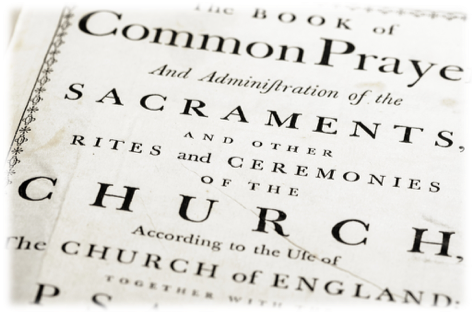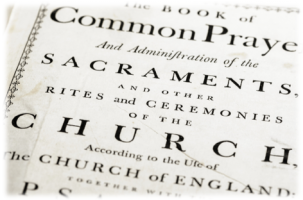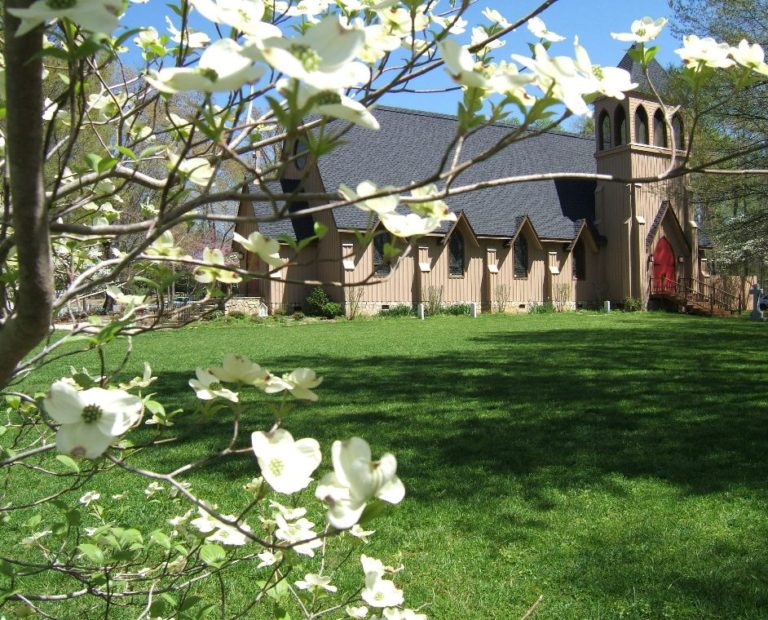Why Anglicanism? Tractate XII

XII Why Anglicanism?
The Rev’d. Allen Fisher
Why Anglicanism?
For both old and new believers alike, there comes a point when they need more if they are to continue growing in their faith. For newer believers, it doesn’t take long after believing in and accepting the new life made available by Jesus that they realize it cannot be done alone. Then, for older believers who after the blessing of spending years within a believing community who taught them the doctrines and the do’s and don’ts of the Faith, they realize that there still has to be more to Christianity. This is where, and when, most people discover Anglicanism – the branch of Christ’s universal Church which grows out of England and strives to maintain and embody the fullness of the Faith as it has been lived out throughout all times and in all places. The depth and richness of Anglicanism’s affirmation of Mystery, Worship, Sacraments, History, Ecclesiology, and Spirituality more times than not come to serve as some of the richest soil for planting, growing, and nurturing faith into fruitfulness.
The Mystery
Eventually, many realize that Christianity cannot be apprehended by reason alone and discover the futility of trying to do this. Anglicanism understands that the goal of Christianity can never be mistaken for knowing more about God, but rather it is about knowing God more, which requires meeting Him in supernatural Mystery. The supernatural and unseen realities that are beyond the scope of literalism and rationalism are not ignored or dismissed in Anglicanism, but instead are embraced, allowing believers to encounter God in such a way that the revelations granted to them by God through them makes them more sensitive to Him and the invisible realm of His creation.
The Worship
From the Book of Acts in the 1st Century and Justin Martyr in the 2nd Century through all the centuries that followed even into the future, heavenly vision of St. John’s Revelation, Anglicanism retains the simple structure of worship that has characterized Christianity through the ages. Unwittingly many of our faith traditions have strayed from this pattern and have become little more than educational institutions, entertainment venues, and/or rallies for various causes, which all have their places, just not the place of worship. So, much of the discontentment felt by believers in these traditions isn’t due to their not “being fed,” their services being boring, or their congregations not being “woke” enough, but rather it goes much deeper than that. Deep calls to deep and everyone (whether they realize it or not) longs to respond with the deep worship that transcends time, space, and trends. Anglicanism has preserved this ancient way of worship with heavenly origins where earthly worshippers are brought into the heavenly reality to participate in God’s Kingdom.
The Sacraments
Instead of the emphasis being upon what believers do for God, Anglicanism helps them slow down and experience all that God is doing for them in the present. Here, the Sacraments serve as the signs that help believers become aware of all the saving actions of God on their behalf – they are where God and the believer meet in the Mystery. These are the places where believers can experience firsthand God working within and through the created order. Through such visible and tangible signs as blessed water, bread, wine, oil, and laying on of hands worshippers enter the Mystery of Jesus’ saving actions on their behalf in the present. Like signs on the highway informing travelers they have entered into another state, so these signs inform the worshippers they have entered the invisible, ontological Presence of the Father’s saving love for them in Jesus:
- Baptismal Waters – Signs of God’s acceptance, deliverance, and new birth.
- Eucharistic Bread and Wine – Signs of God’s love and favor toward the recipient.
- Confirming Hands – Signs of God’s indwelling and empowerment
- Absolving Voices – Signs of God’s forgiveness and welcome.
- Marriage Bonds – Signs of God’s covenantal commitment.
- Holy Orders – Signs of God’s action and working on the earth and within His Church.
- Healing Oils – Signs of God’s Presence with and for His people.
The History
As Bishop Lancelot Andrewes said, Anglicanism is at its best when it is understood as standing in line with “One canon reduced to writing by God Himself, two Testaments, three creeds, four general councils, five centuries, and the series of Fathers in that period.” Anglicanism does not assume that everyone before the present period was somehow missing the real thing, but rather it strives to stand in and with Jesus’ historical Presence on the earth. From the Apostles and their students (the Apostolic Fathers), to Tertullian, Athanasius, Augustine, and on to Luther, Calvin, Wesley, and Moody, Anglicanism helps believers to see the great cloud of witnesses of which they are a part and to use those faithful examples from the past to be faithful examples in the present.
The Ecclesiology
Beyond pulpit personalities where it’s all about the preacher up front or worship trends where it depends upon whether the crowds were bored or not, Anglicanism is rooted in the rich soil created between the Eastern and Western tradition of Jesus’ One, Holy, Catholic and Apostolic Church. Many of us have grown up in traditions which have gained part, if not all, of their identity by affirming what they are not (Baptists are not Catholics; Non-Denominationals are not traditional; conservatives are not mainline; etc.). Yet, in Anglicanism, its identity is anchored in and with all of God’s people everywhere. As Queen Elizabeth I said, “There is only one Christ, Jesus, one faith. All else is a dispute over trifles.”
The Spirituality
Stated most simply Anglicanism is a way of describing, experiencing, and living out the truth of Jesus Christ. Unlike many of the familiar ways of doing this (spiritualities of right beliefs, right behaviors, or right causes), Anglicanism seeks not to pit one against another but rather to incorporate the best parts of the Christian spiritual tradition to keep believers growing in communion with the Father, in identification with the Son, and in new life with the Spirit. Anglicanism recognizes that there are ways of life that vex the spirit of communication, worship, and devotion to God, as well as ways of life that nurture it, such as the rhythms of life offered by
- Annual Calendar – Living the life of Christ through weekly and yearly devotions, which assist believers in identifying with Christ and all other Christians around the world.
- Weekly Holy Eucharist – Living life in Communion with the Father, believers regularly experience His love for them and increasingly become the kind of people who can show it to others.
- Daily Offices – Living life in the Spirit by Daily Prayer allows believers to grow in confidence and awareness of His Presence with them every day of their lives.
So, Why Anglicanism?
In short, because Anglicanism offers Jesus to the fullest extent:
- Jesus in Holy Mystery
- Jesus in Liturgical Worship
- Jesus in Blessed Sacraments
- Jesus in His Body – the One, Holy, Catholic, and Apostolic Church
- Jesus in Everyday Spirituality
The LORD Himself promised through Jeremiah: “ye shall seek me, and find me, when ye shall search for me with all your heart” (29:13), and then in His Sermon on the Mount: “Ask, and it shall be given you; seek, and ye shall find; knock, and it shall be opened unto you: For every one that asketh receiveth; and he that seeketh findeth; and to him that knocketh, it shall be opened” (Matt.7:7-8). Anglicanism gives to new and old believers alike the tools, guidance, and spiritual direction to believe and act upon the LORD’s promise.






